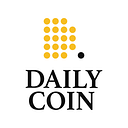The distant future, described in sci-fi books, is already here. Big fin-tech companies are working with developing the Internet of Things (IoT) market, and it is booming. The ethical questions stay open, as there are still no well-defined regulations in the IoT market.
In his book “The 4th Industrial Revolution,” Klaus Schwab describes the near future, when technology and the Internet of things, interconnected with every person’s daily life, will change the current known social order in societies.
The author points out that technology itself is a tremendous opportunity to serve progress and innovation.
On the other hand, if built on a wrong ethical foundation, it could disrupt society.
A Glimpse Into the Future
The real-world application of IoT could be seen in smart homes, automation of climate control, security and camera systems, devices monitoring health, intelligent traffic control, monitoring devices in agriculture, and industrial manufacturing.
Dominik Schiener, the co-founder of IOTA Foundation, in an exclusive interview with DailyCoin, notes that trajectories of future usage of IoT are already visible in daily life:
"Think about ten years ago and how your kitchen looked like. It was all manual. You had to use switches, build your preferences with temperature. Look at the kitchen today where everything is automated and already today through some protocols, your machines can communicate and orchestrate with each other, and that's already a very interesting sort of glimpse into the future."
According to Schiener, our economy is already benefiting from this technology but only 10 % of IoT potential is used.
Ethics of Data Usage
The IoT technology gathers information from devices, analyzes it, and helps to optimize the processes. As such, it also piles a tremendous amount of user data that needs to be treated cautiously.
"I'm the first one to say that I have no IoT devices. I do not believe in the current version of IoT simply because it's centralized. Some companies own it out of Silicon Valley who really perceive you as a monetization asset."
claims Schiener.
Currently, the IoT data is being treated in a centralized environment. A cloud owned by a company is a decision-maker. Schiener believes that fin-tech behemoths in Silicon Valley enter the crypto space with a wrong mentality, which prevents them from succeeding at the end of the day. Even though they get huge profits, the ethos behind gain is crucial in the crypto universe, which spins around decentralized communities:
"Building distributed ledger, you can come into this space and raise hundreds of millions of dollars from Non-Venture Capital companies, but you need to lift their ethos, you need to be here for a reason, and your reason to be here cannot be money.
If you're here to make money, sure, you're going to make a few hundreds of millions of dollars over a few years. But it's not the objective. You're not going to succeed with that mentality. Your mentality has to be focused on value creation because that is what distributed ledgers were built for,"
thinks Schiener.
During the Internet revolution years the idea of networks equally everyone connecting was alive.
Unfortunately, it didn’t fulfill its prophecy, as the Internet was centralized in the hands of fin-tech behemoths. According to the co-founder of IOTA we have reached the exact turning point with crypto and IoT so important decisions need to be made.
The Next Phase of Automation is Autonomy
Decentralization is where the crucial part of IOTA Foundation’s work lies. It aims to build a new digital economy by redefining how people and devices connect to share information and value. By creating a standardized and open-source technology, the foundation highlights trust and transparency in managing the IoT.
"It's not about the cloud owning your IoT device, but it's about you owning your assets: Owning your devices, your identity, your data and being able to make decisions with them through IOTA,"
notes Schiener.
IOTA is a lightweight protocol that can run on IoT devices. IOTA gives every machine a wallet to hold assets, IOTA tokens, earn money, and pay for services. In this way IoT is decentralized; every device is empowered to participate in the consensus of the network.
According to IOTA, the key is leaderless consensus protocol. There are no miners. There’s no block rotation. There’s no validator rotation. Everybody participates in a consensus. Schiener is positive — IOTA can enable this future and the next phase of automation, autonomy.
